
Eilat is Israel's southernmost city, with a population of 52,753, a busy port and popular resort at the northern tip of the Red Sea, on what is known in Israel as the Gulf of Eilat and in Jordan as the Gulf of Aqaba. The city is considered a tourist destination for domestic and international tourists heading to Israel.
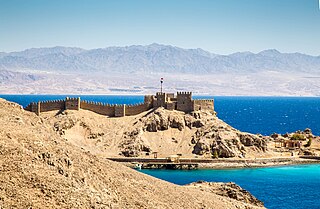
Taba is an Egyptian town near the northern tip of the Gulf of Aqaba. Taba is the location of Egypt's busiest border crossing with neighboring Eilat, Israel. It is the northernmost resort of Egypt's Red Sea Riviera.

Sharm El Sheikh is an Egyptian city on the southern tip of the Sinai Peninsula, in South Sinai Governorate, on the coastal strip along the Red Sea. Its population is approximately 73,000 as of 2023. Sharm El Sheikh is the administrative hub of Egypt's South Sinai Governorate, which includes the smaller coastal towns of Dahab and Nuweiba as well as the mountainous interior, St. Catherine and Mount Sinai. The city and holiday resort is a significant centre for tourism in Egypt, while also attracting many international conferences and diplomatic meetings. Sharm El Sheikh is one of the Asian cities of Egypt.
This page is a partial listing of incidents of violence in the Israeli-Palestinian conflict in 2004.

South Sinai Governorate is the least populated governorate of Egypt. It is located in the east of the country, encompassing the southern half of the Sinai Peninsula. Saint Catherine's Monastery, an Eastern Orthodox Church monastery and UNESCO World Heritage Site of world renown, is located in the central part of the governorate.
The 2005 Sharm El Sheikh bombings were committed by Islamist group Abdullah Azzam Brigades on 23 July 2005 in the Egyptian resort city of Sharm El Sheikh, at the southern tip of the Sinai Peninsula. Eighty-eight people were killed by the three bombings, the majority of them Egyptians, and over 200 were injured, making the attack the deadliest terrorist action in the history of Egypt, until it was surpassed by the 2017 Sinai mosque attack.

The 2004 Sinai bombings were three bomb attacks targeting tourist hotels in the Sinai Peninsula, Egypt, on 7 October 2004. The attacks left 34 people dead and 171 injured.

The Dahab bombings of 24 April 2006 were three bomb attacks on the Egyptian resort city of Dahab, in the Sinai Peninsula. The resort town is popular with Western tourists and Egyptians alike during the holiday season.

The Ras Burqa massacre was a mass shooting on 5 October 1985 on Israeli vacationers in Ras Burqa, a beach resort area in the Sinai peninsula, in which seven, including four children, were killed by Egyptian soldier Suleiman Khater.
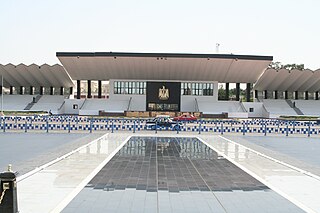
Terrorism in Egypt in the 20th and 21st centuries has targeted the Egyptian government officials, Egyptian police and Egyptian army members, tourists, Sufi Mosques and the Christian minority. Many attacks have been linked to Islamic extremism, and terrorism increased in the 1990s when the Islamist movement al-Gama'a al-Islamiyya targeted high-level political leaders and killed hundreds – including civilians – in its pursuit of implementing traditional Sharia law in Egypt.

The Taba Border Crossing, also known in Israel as the Menachem Begin Crossing, is an international border crossing between Taba, in Egypt, and Eilat, in Israel. The Taba Border Crossing is the southernmost point in Israel.
The 2008 Israeli tour bus crash was a road accident in southern Israel on 16 December 2008 in which a coach carrying Russian tour operators left the road and plunged into a ravine, killing 25. It is the deadliest traffic accident in Israel's history.
The 2009 Hezbollah plot in Egypt involved the arrest of 49 men by Egyptian authorities in the five months preceding April 2009. Egypt accused them of being Hezbollah agents planning attacks against Israeli and Egyptian targets in the Sinai Peninsula. The arrests led to tensions between the Egyptian government and Hezbollah, as well as between Egypt and Iran.

Rocket attacks on the neighboring cities of Eilat, in Israel, and Aqaba, in Jordan, have been a tactic used by militants from the Palestinian Islamist group Hamas and organizations linked with Al-Qaeda because of the relative ease of launching rocket attacks against these two cities from adjacent desert areas. Most of these attacks target Eilat, the last attack on Aqaba was in 2010.
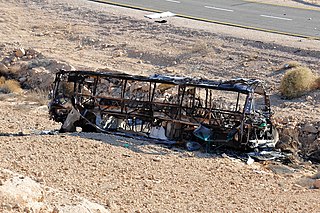
On August 18, 2011, a series of cross-border attacks with parallel attacks and mutual cover was carried out in southern Israel on Highway 12 near the Egyptian border by a squad of presumably twelve militants in four groups. The attacks occurred after Israel's interior security service Shin Bet had warned of an attack by militants in the region and Israeli troops had been stationed in the area. The militants first opened fire at an Egged No. 392 bus as it was traveling on Highway 12 in the Negev near Eilat. Several minutes later, a bomb was detonated next to an Israeli army patrol along Israel's border with Egypt. In a third attack, an anti-tank missile hit a private vehicle, killing four civilians. Eight Israelis – six civilians, one Yamam special unit police sniper and one Golani Brigade soldier—were killed in the multiple-stage attack. The Israel Defense Forces reported eight attackers killed, and Egyptian security forces reported killing another two.
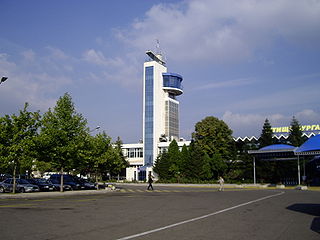
The 2012 Burgas bus bombing was a terrorist attack carried out by a suicide bomber on a passenger bus transporting Israeli tourists at the Burgas Airport in Burgas, Bulgaria, on 18 July 2012. The bus was carrying 42 Israelis, mainly youths, from the airport to their hotels, after arriving on a flight from Tel Aviv. The explosion killed the Bulgarian bus driver and five Israelis and injured 32 Israelis, resulting in international condemnation of the bombing.

Ansar Bait al-Maqdis, or Ansar Al-Quds, was a jihadist, extremist terrorist group based in Sinai from 2011-14.

The 2014 Taba bus bombing was a terrorist attack on a tourist coach in Taba, Egypt on 16 February 2014. The bus had been parked, waiting to cross into Israel at the Taba Border Crossing, when a lone suicide bomber entered the open bus and detonated his explosives. Four people – three South Koreans and the Egyptian bus driver were killed, and 17 others injured.
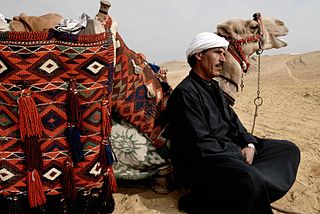
Terrorism and tourism in Egypt is when terrorist attacks are specifically aimed at Egypt's tourists. These attacks often end in fatalities and injuries and have an immediate and sometimes lasting effect on the industry. Attacks take many forms; blowing up an airplane carrying tourists, drive-by shootings of tourists, knife attacks on tourists and suicide bombings in a location where tourists are congregated. On the timeline of these events, the 1997 Luxor Massacre stands out - 62 tourists were ambushed and killed.
Events in the year 2023 in Egypt.












